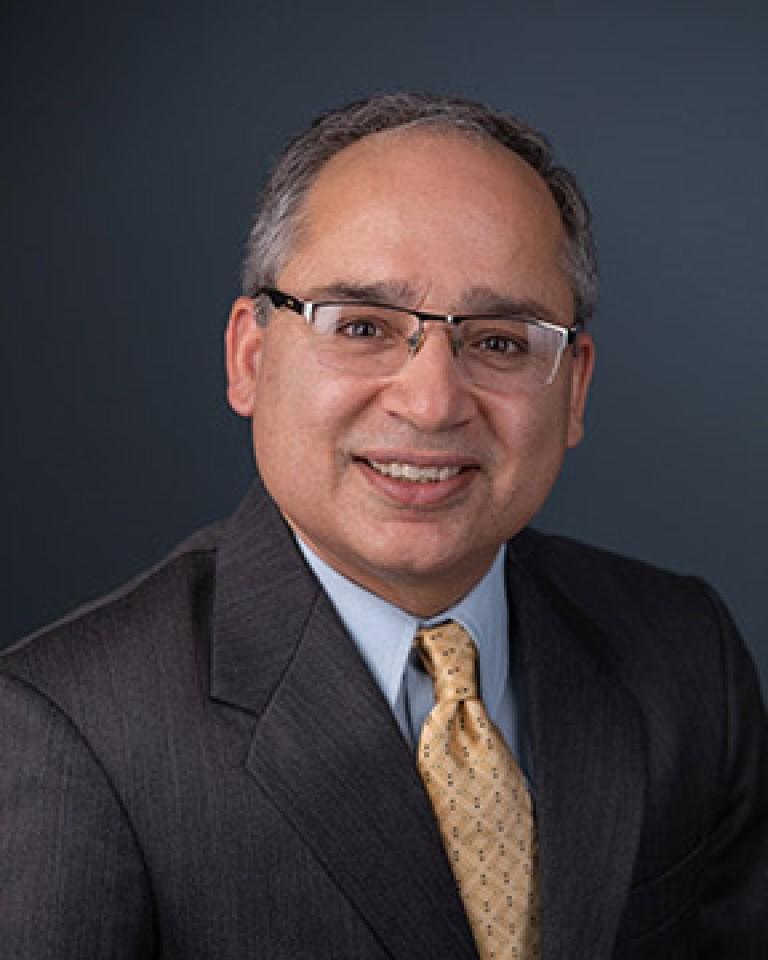Tarun Sabarwal

MENTOR SPOTLIGHT | OCTOBER 2020
Department: Economics
Describe your research/creative scholarship in a few sentences that we can all understand: I study economic and social decision-making and its collective impact. When institutions, organizations, or individuals make decisions that affect the choices of others, the final results can often be complex and lead to unintended consequences. I use mathematical models of markets and game theory to predict outcomes in these situations and to develop principles to guide predicted outcomes.
Q: How did you first get interested in doing research or creative work?
A: I took a really fascinating and unusually structured class on entrepreneurship during my MBA. The professor said there were no constraints on what we could choose to do or not do the whole term (no attendance requirement, no homework, no required readings, no exams). The only constraint was to write a business plan for a small business by the end of the term and to present it. The entire grade would be based on it. I absolutely loved the freedom to think and work flexibly and on my own terms.
Q: What do students in your discipline learn by doing research that they wouldn’t learn by just taking classes?
A: Actual hands-on research goes beyond structured classroom learning. You are trying to understand some aspect of a problem that has not been solved yet. Classroom skills help you understand how to think about a problem or question, how others have tried to solve it, what are the limitations of our existing understanding, and, based on accepted standards in a discipline, what an improved understanding would entail. Coming up with a better answer is the new part. That is not available in a class, or in a book, or online. You have the company of previous knowledge and some fellow researchers, but beyond that, it is your own thoughts, skills, intuition, and experience.
Q: What do you find to be the most exciting part of doing research or creative work? What makes this line of work meaningful and interesting to you?
A: The requirement to think for myself. That is the most satisfying and liberating part of research.
Q: What advice do you have for undergraduates interested in doing research in your field?
A: In order to do good research in economics, it is critical to build analytical skills in the fields of mathematics, statistics, and data analysis. Of course, you need to understand consumers, firms, societies, nations, philosophy, law, and so on, but you get that in different parts of your economics education. Undergraduate education typically does not require advanced analytical skills and this limits a student’s ability to do high quality research in economics. It is easy to say this, but really important. Every year, I see students cope with the big jump in analytical requirement from the undergraduate program to the graduate program.
Q: For many students, doing research or a larger creative project is the first time they have done work that routinely involves setbacks and the need to troubleshoot problems. Can you tell us about a time that your research didn’t go as expected? Or about any tricks or habits that you’ve developed to help you stay resilient in the face of obstacles?
A: Every single time! I have never had a research project that ended exactly the way I was thinking about it in the beginning. That’s the nature of tackling a new and uncertain problem. On the positive side, every single time I have still been able to solve an interesting problem by adjusting the direction of the initial problem or modifying the technique used. When you hit an obstacle, give the problem some time to sink further into your mind and let the churning continue. It is also good to discuss with others who understand the broad aspects of the problem (although the further you go, the more you are on your own).
Q: How do you spend your time outside of work?
A: Going to soccer games for my two boys. You’d be surprised how much time that adds up to.